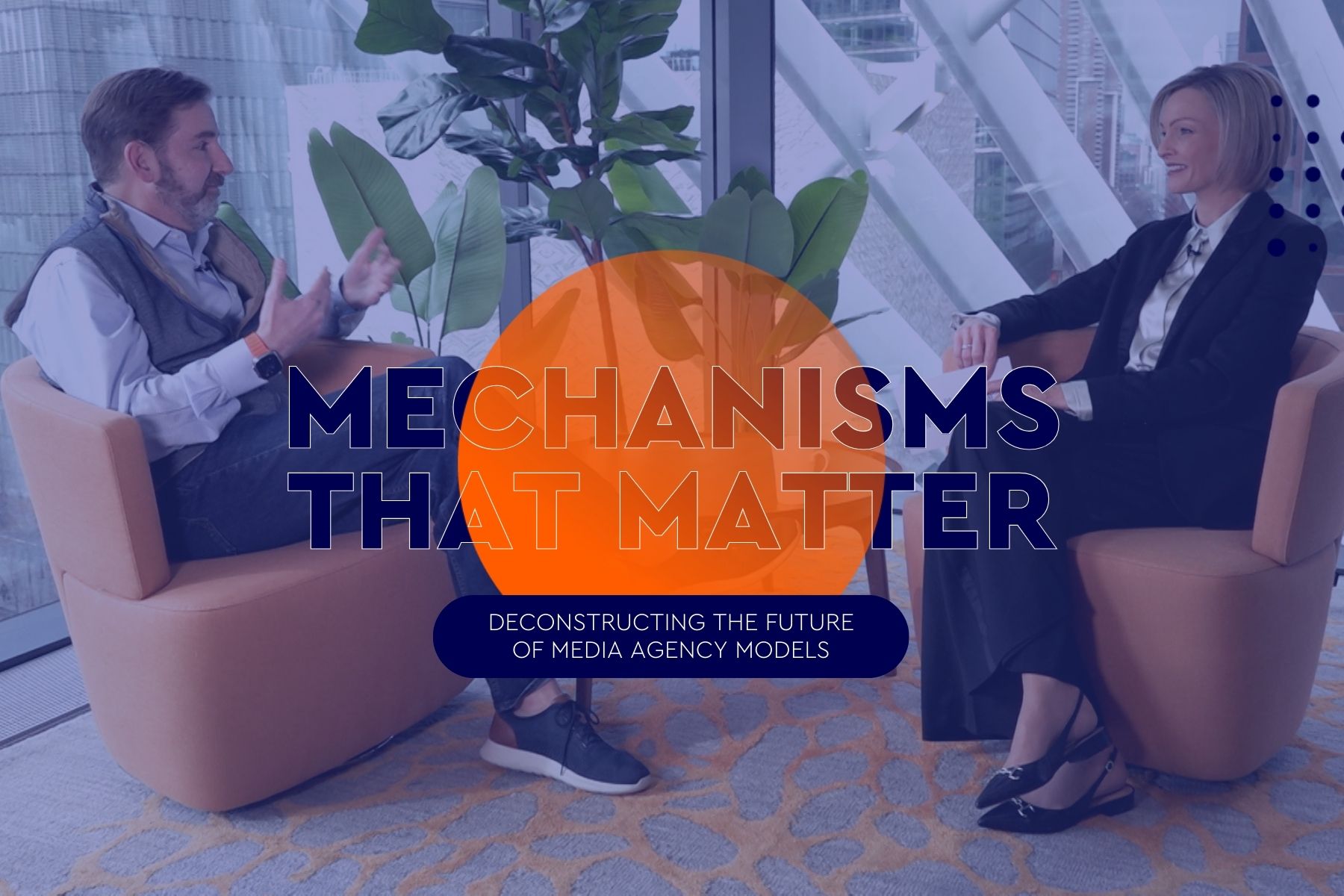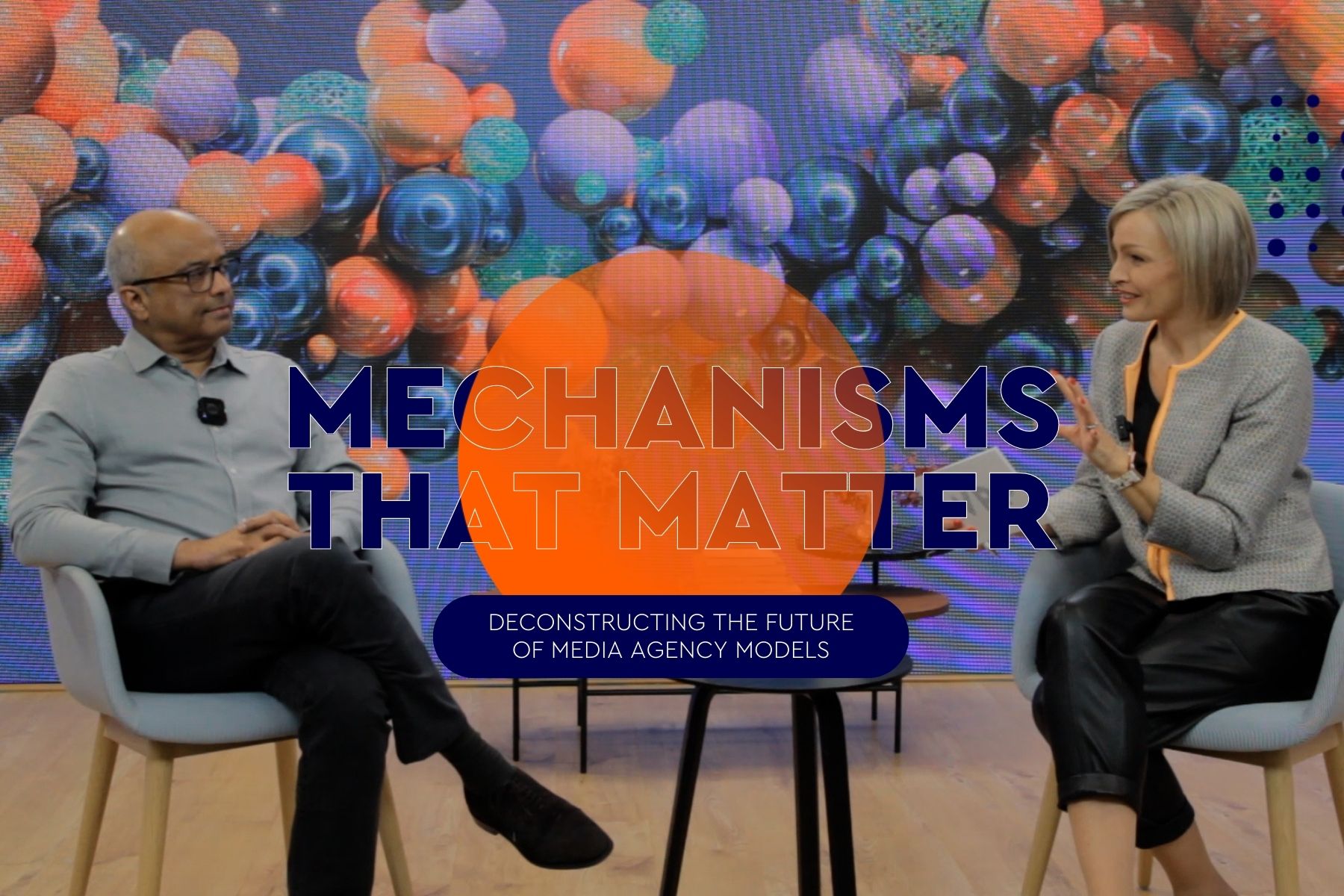Inclusion champions: Neo Makhele and Keith Cartwright
The importance of tension in creating great work
Show this article in Chinese, French, Portuguese (BR), Spanish
To coincide with the meeting of WPP’s new global Inclusion Council in September, and National Inclusion Week across the UK, WPP is bringing together 12 changemakers from across the network. These individuals are driving key conversations around inclusion and diversity and the industry-wide agenda forward. Across six conversations they discuss action, initiatives, and the power of advertising and marketing to create change in wider society.
Keith Cartwright, Cartwright’s Founder and CCO, and Neo Makhele, Chief Strategy Officer at Ogilvy South Africa, discuss the importance of tension in creating great work, racial inequities in the advertising and marketing industry, and why politeness is the enemy of diversity.
Keith Cartright, Founder and CCO, Cartwright (He/Him/His): One of the biggest, most obvious obstacles for me in our business is race – it's been anaemic for a long time. There haven't been a lot of people that look like me. I've been in the business a long time – over 20 years – so I've seen it at its worst. It's gotten somewhat better, but we have a long way to go. At least we're having the conversation and we're talking about it now. For me it has been one of the most challenging obstacles to overcome because I'm trying to navigate something that I can't control.
I'm a Co-Founder of a non-profit called Saturday Morning. We started it on the premise that we can shift awareness about race and inequality using creativity. I think, for me, it's therapy because I get to work with African-American creative directors who are my co-founders, and who I respect. We get to have camaraderie over the thing that we do and love, which is making art and creating advertising. Then we get to put something out into the world that is a part of our belief system and hopefully helping to shift the conversation.
We were fortunate to be nominated for an Emmy for something that we did. And [the joy of it] is not about the award that we're being nominated for, it's about the fact that something that we did as a very small group is getting recognition. That recognition is going to amplify the message. So, the better the work, the better the idea, the more churn it gets, the more organically that message is going to be broadcast to a larger audience. So, that's our ROI on the time we spend working on this non-profit.
Neo Makhele, Chief Strategy Officer, Ogilvy South Africa (She/Her/Hers): That sounds amazing. In South Africa, as you know, we have a historical race issue, but there's been a huge wave in the past three or four years, where consumers have taken back power and are demanding brands take a stand. I find that social media is a huge driver of the change that needs to happen. And what you actually see is consumers on the streets forcing brands or forcing businesses to take responsibility.
For me, diversity's not about agreeing. Sometimes politeness is the enemy of diversity.
In addition to our race issue, we also have another pandemic in South Africa which is gender-based violence. Research shows abuse rates spike after big soccer matches, where tension is high and a lot of alcohol is consumed. So, we actually did some work for Carling Black Label which recognised this and used its voice to try to protect women. This is just one of many examples where brands are starting to opt in and be part of a solution, as opposed to a brand that stands by silently.
KC: For us here in the States, we're going through a massive upheaval on race. A lot of it is based on people documenting atrocities on their phones – mainly between black men and police officers. Society's tired of it, it seems. And brands are tired of it too. Our country is tired of it – at least a large portion of it is. Because some people, and brands, haven't really engaged in this conversation before, they’re nervous about how and what to say because they don't want to mess up. It's difficult to have that conversation in polite company sometimes, let alone on a large stage where the world can see and where they can criticise you or your brand.
So, that's been the challenge for a lot of brands. They want to do it, they have all the right intentions, but just don't know how. We've been helping a lot of brands do that at our agency, Cartwright.
We built our agency on the common-sense principle that when you have a diverse workforce, it makes the work better. My goal is that one day, when we go back into the office and we look around, it'll be obvious why the work is great; because when you sit in a room you're going to hear different backgrounds, be it through the lens of gender or race or experience – I think that proves itself. My hope is that we won’t have to have hard conversations about inclusion, because inclusion becomes a very natural state when your workforce is inclusive. You don't have to work as hard if you are building it from the inside out.
NM: I completely agree that when you have a diverse talent pool, you have diverse experiences, and there's a multiplier effect to your insights. It brings so much more energy to the work and it creates a beautiful tension.
I think that great ideas are born out of tensions, between strategists and creatives or between team members. Where someone thinks about something this way, then another team member disagrees and tries to make it better; something more beautiful comes out. I think there's a multiplier effect. The fact that when you then have to sell the work to clients and you’ve already had to sell it to this person who was of a different background or opinion, but you understood that lens and you resolved it, is a huge help.
Tension is everything. What are we rubbing against in order to get to something interesting and new? And what are the debates that we've had to get there?
KC: Tension is everything. What are we rubbing against in order to get to something interesting and new? And what are the debates that we've had to get there? Those debates are actually the most important part of great work because you're challenging things along the way. You're asking is the work good? And is it something that will be applicable to a woman, a person of colour, someone who's not from the West Coast or the East Coast? You're challenging all those things in the room. As the work shifts, having all those voices in the room is so important.
What should we be doing as an industry to truly achieve equity for people of colour?
NM: Be the change.
KC: I completely agree. In marketing and advertising, we put so many images out into the world, and we're so responsible for pop culture. We have a responsibility with that much media spend to make sure that we're being really thoughtful about the images and the things that we say and do. So, to your point Neo, we need to be the change. We need to be the leaders in business internally, in how we staff, and in what inclusivity looks like in our business. Then externally, what we produce and how we communicate. It's a huge responsibility that I think we haven't grabbed hold of yet. It's an incredible power. We are creating the images that the world sees. What we do with it and how we shift perceptions using those images is everything.
NM: We do have the platform, so we can be the change with the work that we do. It’s also the structure that we need to put in place, as for me, diversity's not about agreeing. Sometimes politeness is the enemy of diversity. Diversity means that we can have a conversation, and I can understand you more because your world is different, and you can understand me more. The more we [encourage diversity], the more comfortable we get with diverse people and having, at times, uncomfortable conversations. We can begin to try and understand and know each other, and create spaces for different people to enact and create things.
The spirit of entrepreneurship and business will come from different people with different backgrounds. So in effect, I think that’s what we need to do – let's do what we want to do. We want to be the change, so let's just do it. We'll have many failings and many successes, but hey, we didn't stay sleeping.
Read more from our Inclusion Champions in conversation series
published on
29 September 2020
Category
More in Communications

Mechanisms that Matter – Inside our partnership with Audible
How do you take a huge client like Audible from 22 agencies to one thriving networked team?

Healthcare communications – diverse, dynamic & different
Communicating about health and healthcare in APAC requires a nuanced and balanced approach

Mechanisms that Matter – How India is fuelling growth for global brands
CVL Srinivas tells Anna Hickey how WPP Open is fuelling a testbed for new working models, innovation, and automation.

